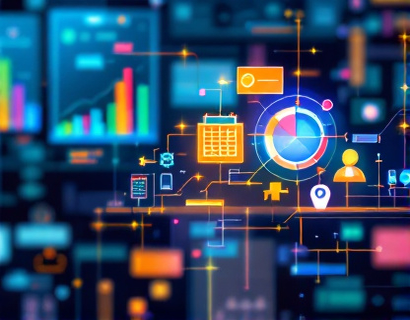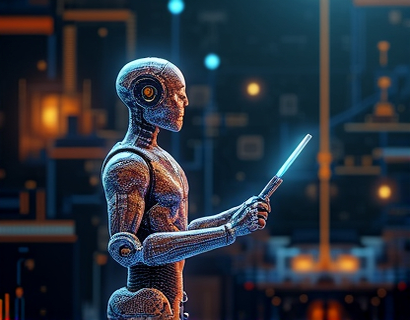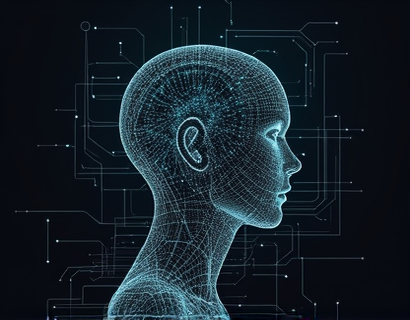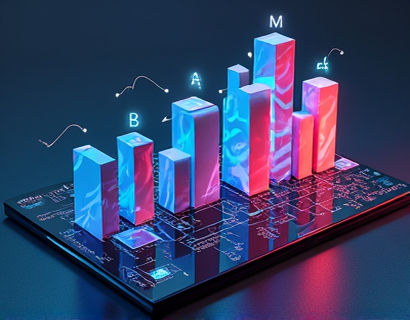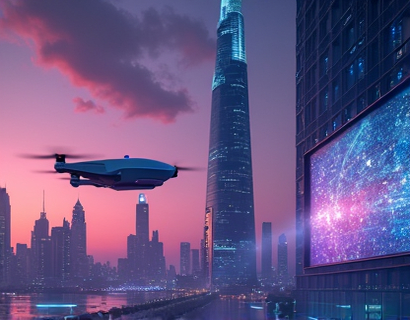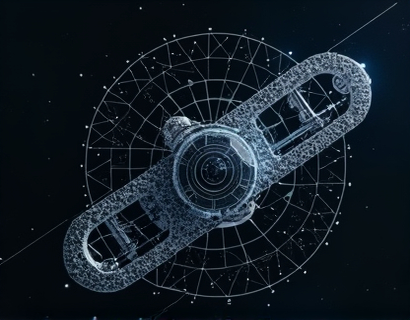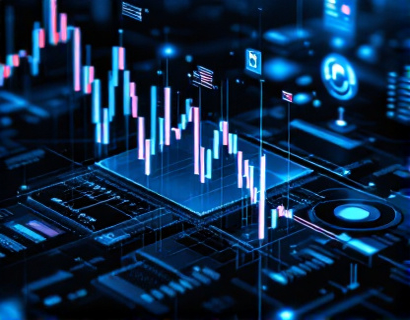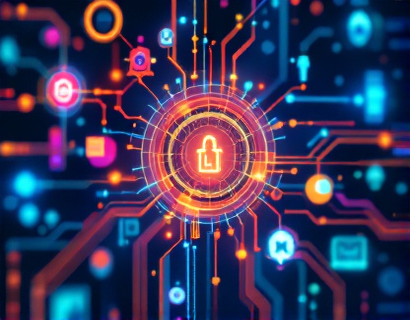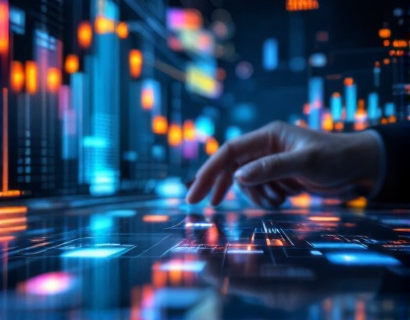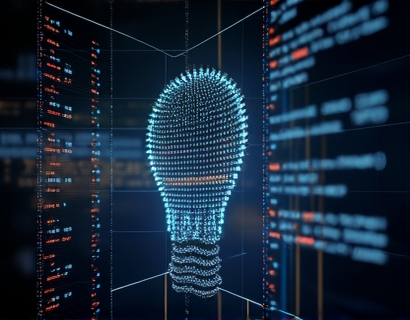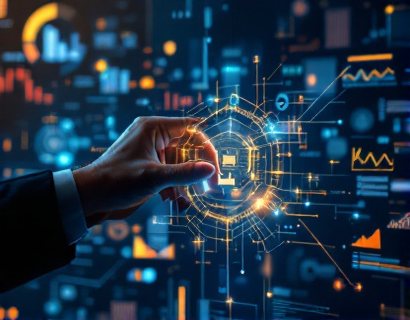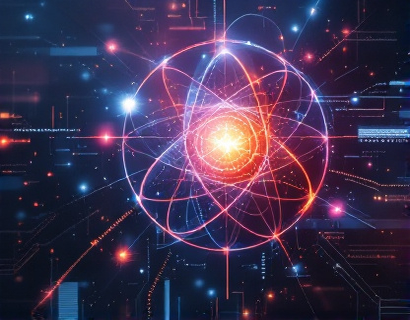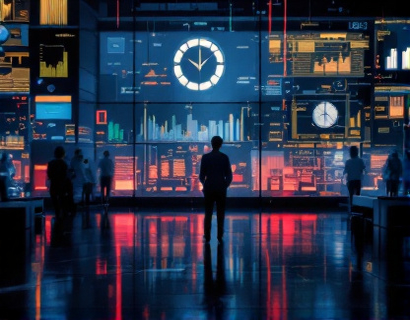Pioneering Seamless Digital Transformation: The Convergence of AI and Crypto
The digital landscape is undergoing a profound transformation, driven by the convergence of two revolutionary technologies: Artificial Intelligence (AI) and blockchain. This synergy, often referred to as BlockchainAI, is reshaping industries and redefining how businesses operate. By merging the power of AI with the security and transparency of blockchain, organizations can achieve unprecedented levels of efficiency, security, and innovation. This article delves into the transformative potential of this combination, exploring how it can drive business growth and provide a competitive edge in the rapidly evolving digital era.
The Synergy of AI and Blockchain
AI and blockchain are not just complementary technologies; they are transformative forces that, when combined, create a powerful ecosystem. AI's ability to process vast amounts of data, learn from patterns, and make intelligent decisions is enhanced by blockchain's inherent properties of decentralization, immutability, and transparency. This synergy enables the creation of smart contracts that can execute, verify, and enforce the terms of an agreement automatically, without the need for intermediaries.
The integration of AI with blockchain technology addresses some of the most pressing challenges in digital transformation. For instance, AI can optimize blockchain networks by improving transaction processing speeds, reducing energy consumption, and enhancing security protocols. Conversely, blockchain provides a robust framework for AI systems to operate in a trustless environment, ensuring data integrity and reducing the risk of fraud.
Enhancing Business Operations with BlockchainAI
Businesses that embrace the BlockchainAI paradigm can significantly enhance their operations. One of the primary benefits is the automation of complex processes. Smart contracts powered by AI can automate workflows, from supply chain management to financial transactions, reducing manual intervention and minimizing errors. This automation not only increases efficiency but also reduces operational costs.
Another area where BlockchainAI shines is in data management. AI algorithms can analyze vast datasets stored on a blockchain, providing insights that were previously unattainable. This capability is particularly valuable in industries like healthcare, finance, and logistics, where data accuracy and real-time analysis are crucial. For example, AI-driven analytics on a blockchain can ensure that patient data is securely shared among healthcare providers, improving patient care and outcomes.
Security and Trust in the Digital Age
Security is a paramount concern in the digital world, and the combination of AI and blockchain offers a robust solution. Blockchain's decentralized nature makes it inherently resistant to single points of failure and cyber attacks. AI enhances this security by continuously monitoring the network for anomalies and potential threats. Machine learning algorithms can detect and respond to suspicious activities in real-time, providing a dynamic and adaptive security layer.
Moreover, the transparency provided by blockchain ensures that all transactions and data exchanges are visible and verifiable. This level of transparency builds trust among stakeholders, which is essential in industries where trust is a commodity. For instance, in the supply chain, blockchainAI can track the origin and journey of products, ensuring authenticity and compliance with regulations.
Innovation and New Business Models
The convergence of AI and blockchain is not just about improving existing processes; it is also about creating new business models and opportunities. Decentralized finance (DeFi) is a prime example, where AI-driven algorithms can optimize trading strategies, manage risks, and provide personalized financial services. These decentralized platforms operate without traditional financial intermediaries, offering greater accessibility and lower costs.
In the realm of intellectual property, blockchainAI can revolutionize how creators protect and monetize their work. Smart contracts can automatically enforce licensing agreements, ensuring that creators receive fair compensation for their work. AI can further enhance this by analyzing market trends and suggesting optimal licensing terms, maximizing the value of intellectual property.
Challenges and Considerations
While the potential of BlockchainAI is immense, there are challenges that organizations must navigate. One of the primary concerns is the technical complexity of integrating these technologies. Developing a robust and scalable blockchainAI system requires expertise in both AI and blockchain development. Organizations need to invest in skilled personnel or partner with experts to overcome this hurdle.
Another challenge is regulatory compliance. The regulatory landscape for blockchain and AI is still evolving, and organizations must ensure that their implementations comply with local and international laws. This includes data privacy regulations, anti-money laundering (AML) requirements, and other industry-specific regulations.
Energy consumption is also a significant consideration, especially for blockchain networks that use proof-of-work consensus mechanisms. The environmental impact of these networks is a growing concern, and organizations should explore more sustainable alternatives, such as proof-of-stake or other energy-efficient consensus algorithms.
Case Studies and Real-World Applications
Several organizations are already leveraging the power of BlockchainAI to drive innovation and efficiency. For instance, a leading logistics company has implemented a blockchainAI system to track shipments in real-time, ensuring transparency and reducing delays. The AI component analyzes traffic patterns and weather data to optimize routes, while the blockchain ensures that all stakeholders have access to accurate and up-to-date information.
In the healthcare sector, a hospital network has adopted a blockchainAI platform to manage patient data and medical records. AI algorithms analyze patient data to identify potential health risks, while the blockchain ensures that this data is securely shared among authorized healthcare providers. This integration has led to improved patient care and operational efficiency.
Another notable example is in the financial industry, where a major bank has developed an AI-powered trading platform on a blockchain. The platform uses machine learning to analyze market trends and execute trades automatically, while the blockchain ensures that all transactions are transparent and tamper-proof. This has resulted in increased trading efficiency and reduced operational costs.
Future Prospects and Trends
The future of BlockchainAI is promising, with several trends and developments on the horizon. One key trend is the advancement of interoperability between different blockchain platforms and AI systems. As more organizations adopt these technologies, the need for seamless integration and communication becomes increasingly important. Standards and protocols that facilitate interoperability will play a crucial role in the widespread adoption of BlockchainAI.
Another area of growth is the development of more sophisticated AI models that can operate directly on blockchain networks. Current AI models often require significant computational resources, which can be a bottleneck when deployed on blockchain platforms. Research into edge computing and on-chain AI is expected to address this issue, enabling more complex and efficient AI applications on the blockchain.
Furthermore, the rise of decentralized artificial intelligence (DAI) is an exciting development. DAI involves distributing AI model training and inference across a decentralized network, leveraging the computational power of multiple nodes. This approach not only enhances privacy and security but also democratizes access to AI technologies.
Conclusion
The convergence of AI and blockchain is poised to revolutionize the digital landscape, offering unparalleled opportunities for businesses to innovate, secure, and grow. By harnessing the strengths of both technologies, organizations can achieve a new level of efficiency, transparency, and trust. While challenges exist, the potential benefits make the investment in BlockchainAI well worth the effort. As the technology continues to evolve, those who embrace this synergy will be at the forefront of the next digital revolution.



